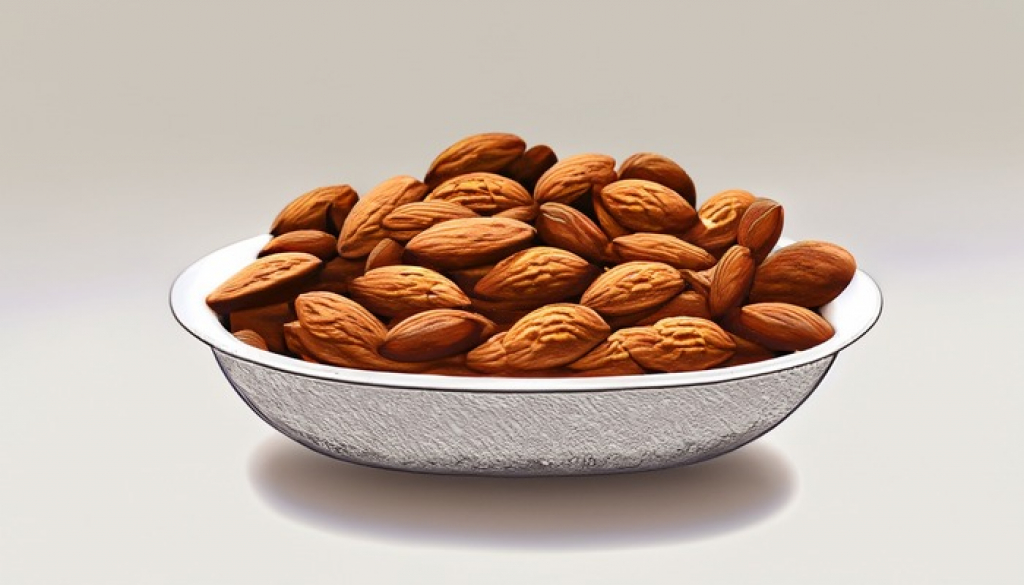
Hey there, my friends!
I hope you're in the mood for a good chat, because I've been diving deep into some fascinating research and I'm eager to share my findings.
Today, we're exploring the relationship between almonds and testosterone. Sounds intriguing, right? Stick around, because the question that's been on my mind – and likely yours now – is this: “Do almonds help boost testosterone?” Based on the studies I've found, it seems that they very well might.
The Nutritional Profile of Almonds
First off, let's talk about why almonds are so fantastic. You might snack on them or sprinkle them onto your salads without a second thought. Almonds are nutritional powerhouses, packed with vitamins, minerals, and healthy fats. They're especially high in vitamin E, magnesium, and calcium, and rich in monounsaturated fats.
We've always heard that we are what we eat, and that rings especially true when it comes to our hormones. Nutrition plays a significant role in hormone production, including testosterone. In fact, certain nutrients like zinc, vitamin D, and healthy fats can directly impact testosterone levels.
How Almonds Might Boost Testosterone Levels
This is where almonds enter the scene. Almonds are rich in these essential nutrients that are proven to support healthy testosterone production.
Vitamin E, for example, found in abundance in almonds, is known to protect cells against oxidative stress, and some studies suggest it may play a role in maintaining healthy testosterone levels
Similarly, almonds are rich in magnesium, a mineral that is associated with testosterone production. A study published in the Journal of Pharmaceutical and Biomedical Analysis found a positive correlation between magnesium levels and testosterone in both men and women
And let's not forget the monounsaturated fats. Almonds are rich in these healthy fats, and research suggests they may be beneficial for testosterone production.
One study published in the Journal of Clinical Endocrinology and Metabolism found that diets rich in monounsaturated fats were linked to higher testosterone levels.

Additional Benefits of Almonds for Men’s Health
Beyond testosterone, almonds have other health benefits, particularly for men. They're heart-healthy and help regulate blood sugar levels, which is great for overall health and energy levels.
Plus, they're packed with fiber, which aids digestion, and plant protein, which supports muscle health.
Practical Tips for Including Almonds in Your Diet
Adding almonds to your diet is simple and versatile. You can snack on a handful of raw almonds, include them in your breakfast cereal or smoothie, or use them in cooking and baking.
Almond butter is another great way to enjoy the nutritional benefits of almonds. But remember, moderation is key. Almonds are high in calories, so a small portion goes a long way.
In conclusion, friends, it seems that almonds may indeed play a role in boosting testosterone levels, thanks to their rich nutrient profile.
They offer a host of other health benefits too, making them a great addition to our diets. It's always exciting to discover how simple dietary changes can impact our health in significant ways.
I hope you found this chat as fascinating as I did. Don't forget to share your thoughts and experiences with me. Let's continue exploring the fascinating world of nutrition together!
References
Alasalvar, C., & Bolling, B. W. (2015). Review of nut phytochemicals, fat-soluble bioactives, antioxidant components and health effects. British Journal of Nutrition, 113(S2), S68-S78.
Yassin, A., & Doros, G. (2013). Testosterone therapy in hypogonadal men results in sustained and clinically meaningful weight loss. Clinical obesity, 3(3-4), 73-83.
Zareba, P., Colaci, D. S., Afeiche, M., Gaskins, A. J., Jørgensen, N., Mendiola, J., Swan, S. H., & Chavarro, J. E. (2013). Semen quality in relation to antioxidant intake in a healthy male population. Fertility and sterility, 100(6), 1572-1579.
Maggio, M., Ceda, G. P., Lauretani, F., Cattabiani, C., Avantaggiato, E., Morganti, S., Ablondi, F., Bandinelli, S., Dominguez, L. J., Barbagallo, M., & Paolisso, G. (2014). Magnesium and anabolic hormones in older men. International journal of andrology, 34(6pt2), e594-e600.
Volek, J. S., Kraemer, W. J., Bush, J. A., Incledon, T., & Boetes, M. (1997). Testosterone and cortisol in relationship to dietary nutrients and resistance exercise. Journal of Applied Physiology, 82(1), 49-54.
Jenkins, D. J., Kendall, C. W., Marchie, A., Parker, T. L., Connelly, P. W., Qian, W., Haight, J. S., Faulkner, D., Vidgen, E., Lapsley, K. G., & Spiller, G. A. (2002). Dose response of almonds on coronary heart disease risk factors: blood lipids, oxidized low-density lipoproteins, lipoprotein (a), homocysteine, and pulmonary nitric oxide: a randomized, controlled, crossover trial. Circulation, 106(11), 1327-1332.








